
President Tinubu alongside his VP Shettima
Notwithstanding the euphoria that greeted the recent waves of defections of some members of key opposition parties into its fold, the festering crises within the ruling All Progressives Congress (APC) have reached a feverish stage, intensifying worries among stakeholders about the sustainability of the fragile peace within the party.
The renewed speculation about the potential defection of All Nigeria People’s Party (ANPP) members, as well as the larger group of Buhari loyalists in the defunct Congress for Progressive Change (CPC), has further added to the growing concern. All this is coming amid the seemingly intractable power squabbles in some state chapters of the party, notably Benue and Rivers, the rumoured rift between President Bola Ahmed Tinubu and Vice President Kashim Shettima, and the leadership dilemma in Kano State following the exit of Abdulahi Ganduje as the National Chairman.
The latest ANPP/CPC intrigues highlight the challenges facing APC, including internal crisis, potential defections and its vulnerability to external pressure from the new coalition group led by former Vice President Atiku Abubakar.
The two blocs – ANPP and CPC – were part of the 2014 merger arrangement that culminated in the formation of the APC which ultimately ousted the then incumbent President, Dr Goodluck Jonathan. The death of former President Muhammadu Buhari, who served as a unifying figure and the symbolic leader for many of his staunch followers, has, however, reignited speculations about the perceived cracks in the APC. Although uneasy calm pervades the hierarchy of the party, beneath the façade is a growing anxiety about the threat of losing key figures and their followers from the former ANPP/CPC. Losing these critical elements, observers say, would severely weaken the party’s structure and mobilization capabilities, especially in the Northern region.
This concern is borne out of the relentless efforts by the emerging opposition coalition, notably centred around Atiku Abubakar’s new affiliation with the African Democratic Congress (ADC), to attract Buhari’s former political base into the fold. As such, there is a growing fear that the coalition might capitalise on the perceived discontent within these two critical blocs to lure aggrieved members into the new alliance which presents itself as a viable alternative in the 2027 general elections.
Without Buhari’s direct leadership and unifying presence, many analysts believe his formidable cult-like followership, often estimated at over 12 million persons during his peak, could become fragmented and seek new political homes. Even before now, prominent figures like former Kaduna Governor, Nasir El-Rufai, former Attorney General of the Federation and Minister of Justice, Abubakar Malam, and erstwhile Secretary to the Government of the Federation, Babachir Lawal, had openly expressed disaffection, leading campaign for the new emerging coalition in a bid to stop the re-election of President Bola Ahmed Tinubu. While El-Rufai was initially from the ANPP bloc before joining the CPC-Buhari movement, his current stance reflects broader discontent among those who felt aligned with the previous administration.
ANPP/CPC defection threat
Since ascension of Tinubu to the presidency in 2023, the influence of Buhari’s loyalists is widely perceived to have waned. Some members of the former ANPP and CPC blocs feel they have been marginalised within the current APC structure. They are aggrieved that their contributions to the APC’s formation and initial success have not been adequately rewarded by the current administration.
Aggrieved members of the defunct ANPP) are threatening to pull out of the APC, citing alleged marginalisation by former President Muhammadu Buhari and now President Bola Tinubu.
At a press conference in Abuja on Monday, National Coordinator of the Association of former ANPP Members, Prof Vitalis Orikeze Ajumbe, told journalists that since the emergence of the APC, most ANPP members have been relegated to the background.
Ajumbe said in the next few weeks, his group would organise state and zonal meetings to inform their members of their resolutions.
“We are aware that Mr President is too busy and may not be aware of the exclusion of the former ANPP bloc from the scheme of things in the APC-led federal government, and that is why we are bringing it to his notice,” he said.
To forestall their defection, he urged President Tinubu to consider appointing ANPP members as board chairmen, ambassadors, ministers, and heads of government agencies and departments. He also demanded the vice-presidential seat in the 2027 polls.
The political calculations for 2027 are driving intense realignment efforts, and the loyalty of Buhari’s former base are a critical component of this struggle. The APC is working to retain them, but the opposition figures are not relenting either. They are actively working to pry them away.
Due to the fluid nature of Nigeria’s politics, every cycle of election usually throws up new challenges and opportunities. In the present circumstance, there might be a need for the APC to re-negotiate the terms and conditions for the continued accommodation of various interest groups that coalesced to form the party. Whatever it is worth, Buhari loyalists remain a core voting base in the North West and part of the Northeast. They constitute a formidable vote bank, they represent a significant and often disciplined voting bloc, especially at the grassroots. Many analysts believe that their defection would directly translate into a substantial loss of votes for the APC in Northern Nigeria, which is critical for winning a national election. Secondly, a high-profile defection would signal deep internal divisions and disaffection within the ruling party. This can demoralize remaining members, discourage potential new entrants, and project an image of instability, which is detrimental to public confidence. Such a defection, especially coming so soon after Buhari’s passing, would be interpreted by many as the crumbling of the original merger coalition that brought the APC to power. It could fuel a narrative that the APC is losing its foundational pillars and is less united than it appears.
The trend could provide a significant psychological boost to opposition parties, particularly the Atiku-led ADC and its potential allies, who are actively courting these disaffected elements. Allowing the crisis to fester will not only legitimize their claims of dissatisfaction within the APC, it will also present them as a more viable alternative, as it will lead to a significant re-alignment of political forces, potentially creating a more formidable opposition capable of challenging the incumbent more robustly than in 2023.
While the APC still holds the power of incumbency, losing a significant bloc of Buhari loyalists, whether from the ANPP or CPC legacy, would be a major blow to Its electoral prospects, particularly in the North, and would significantly alter the political landscape leading up to 2027. Without strong Northern support, the APC’s path to victory becomes much more challenging.
Muhammadu Buhari consistently garnered between 12 and 15 million votes in the 2011, 2015, and 2019 presidential elections. These votes were predominantly from the North, particularly the North-West and parts of the North-East. While not every voter in this bloc was an ANPP or CPC member, they represented a loyal following whose votes were largely influenced by Buhari’s personal appeal.
However, it will be too simplistic to assume that all who voted for Buhari are necessarily committed to a specific bloc after his passing. Unlike developed democracies, political allegiances in Nigeria are fluid due to a lack of strong Ideological divides. The ease with which people defect from one party to another, often just before elections or when their political fortunes within their current party seem dim, and the frequency of defection are the most glaring manifestations of this fluidity. Political parties rarely articulate distinct ideological platforms beyond vague promises of development, good governance, or anti-corruption. Often times, they serve more as vehicles to gain access to state resources and power rather than as platforms for ideological struggle or public service delivery based on distinct principles.
The Atiku-led coalition has been serially criticised owing to the fact that the movement is driven by personal ambition, access to power, or financial incentives rather than ideological conviction.
The notable downside of this trend is distraction to good governance, as government spends considerable time managing internal party feuds and defections rather than focusing on governance. In the like manner, voters too have to struggle to differentiate between parties, leading to cynicism and disinterest in political processes.
Contrary to the previous experience, the current power struggle may be a litmus test for a significant number of high-profile political figures who are openly disaffected or whose loyalty is now being tested. Their deep grassroots structures and ability to mobilize voters in key Northern states will be put to test.
For the same reasons, credibility and consistency of personalities leading a new alliance will be brought to question. Buhari’s vote bloc isn’t just about raw votes; it’s about influential political actors who can mobilize those votes.
In the mean time, the leadership of APC has denied the existence of such group as ANPP bloc, dismissing it as imagination of those fuelling crisis within the party.
APC National Secretary, Ajibola Basiru, who spoke with Sunday Sun, said: “APC is a product of merger and there is no such recognised entity as ANPP bloc.
” This is what we know. We don’t operate on the basis of imaginary blocs,” he said.
The truth is that the ease with which politicians switch parties undermines any claim of ideological commitment.
Rumoured Tinubu/Shettima rift
Although the recent election of Prof. Nentawe Yilwatda as the National Chairman of the party has doused the speculations about the rumoured rift between President Tinubu and Vice President Shettima,there is still anxiety about the issue of running mate waiting to be resolved. Yilwatda’s appointment is seen as a significant step towards putting to rest the widely perceived frosty relationship between President Bola Ahmed Tinubu and his deputy, Kashim Shettima, whom many believe might be dropped as a running mate in the 2027 election. The speculation gained traction when Ali Bukar Dalori from the North-East zone, precisely Borno State, was appointed as the acting chairman after Ganduje’s resignation.
The election of Yilwatda as substantive chairman has several potential implications for Vice President Shettima, especially concerning power dynamics and the road to 2027. Apart from regional balancing and zoning arrangement, it indirectly signals a positive outlook for the maintenance of his position as Vice President, contrary to the wide speculation about possible replacement.
By having a North Central Chairman, it could be argued that it strengthens the overall zoning balance that includes Shettima’s North-East. This aligns with the traditional zoning formula that often seeks to avoid concentrating too much power in one or two zones.
The APC generally operates on a zoning principle to ensure equitable distribution of power and positions across the geopolitical zones. With President Tinubu from the South-West and the Vice President (Shettima) from the North-East, and the vacant position of chairman filled by a North Central candidate, Shettima can now be allowed to maintain his position as the running mate in the next election. He can also consolidate his position as undisputed leader in the North-East zone.
Secondly, the present structure of the party will further strengthen inclusivity perception. Since Professor Yilwatda is a Christian from the North Central and President Tinubu (South-West) with Vice President Shettima (North-East) being Muslims, his emergence as party chairman has created a visible Christian leader at the apex of the party’s structure. This move is seen as strategic to projecting inclusivity and counter criticisms of the Muslim-Muslim presidential ticket, potentially making the party more appealing to Christian voters, especially in the North Central, which has a significant Christian population. This indirectly benefits the Tinubu/Shettima ticket by addressing a sensitive issue.
This position aligns with the perspective of Chief Henry Ajomale, a close associate of President Tinubu and former chairman of APC in Lagos State. While discussing the issue with Sunday Sun in a telephone interview, he dismissed the speculation about a frosty relationship between the President and Shettima as the imagination of opposition groups who were bent on destroying the APC to scuttle Tinubu’s re-election bid in 2027.
Speaking with Sunday Sun in a telephone interview, he said: “Since the former National Chairman, Abdulahi Adamu, is from the North Central, Nasarawa state precisely, it is only fair that the replacement must come from the zone to complete their tenure.
“We have been hearing rumour about a frosty relationship between Shettima and the President, but I don’t think so. A lot of things are being done to divide the APC by creating false information that there is a problem between the President and the Vice President, which I am aware doesn’t exist. If anybody wants to carry any rumour, I am not going to pass it over. All I know is that some people in ADC want to break the APC at all costs. I have not seen the evidence that there is a problem between the President and the Vice President. So, I still consider it as a rumour because I would have known if there is any crack between the President and the Vice President. It is a ploy to tarnish the image of the party and the Vice President.
“The aim of appointing the National Chairman from the North Central is to ensure that there is a balance in the power-sharing within the APC. At the last election, North Central contributed to the victory of Mr President because they voted massively for APC. Irrespective of the fact that majority of them are Christians and all the blackmails surrounding the Muslim-Muslim ticket to sway their votes in favour of either Peter Obi or someone else to block Asiwaju from becoming the President, they played their role well and they contributed a lot to the success of APC in that election. To compensate them, they deserve to fill the vacant position of National Chairman. Even in the next election, their vote is very critical in winning the election.
“For me, I think their concern has been taken care of. The South-South too has been taken care of by the Senate President. And, of course, the North-East by the Vice President. I think everybody is happier now.”
Benue, Rivers and Lagos crises
The crisis within the All Progressives Congress (APC) in Benue State is primarily rooted in issues of godfatherism and the struggle for party control between powerful political figures. The main conflict is between the incumbent governor, Reverend Father Hyacinth Alia, and the Secretary to the Government of the Federation (SGF), Senator George Akume. Akume is a long-standing political strongman and former governor of Benue State, widely considered the godfather who was instrumental in bringing Alia to power.
However, Governor Alia, upon assuming office, asserted his constitutional role as the leader of the APC in the state. This immediately put him at loggerheads with Senator Akume’s faction, who believed Akume, as SGF and a traditional political leader, should remain the supreme authority of the party.
In the ensuing struggles, parallel factions and secretariats emerged, with one aligned with the governor and the other with Akume.
Governor Alia has openly stated his unwillingness to succumb to “godfatherism,” which is a direct challenge to Akume’s long-established influence. This includes disagreements over appointments, control of the State House of Assembly, and the overall direction of the party.
The APC National Working Committee and the Presidency, in an effort to stabilise the party and avoid losing the state in 2027, have tacitly thrown their weight behind Governor Alia as the recognised party leader, while trying to manage Akume’s influence.
The leadership crisis threatening the unity of the All Progressives Congress (APC) members in Rivers State is not abating either. Owing to the prolonged power struggles between Chief Tony Okocha-led Executive Committee and Chief Emeka Beke, the factional Chairman, the party is now at a crossroads over the selection of its candidates for the coming local government elections.
Relying on a subsisting order of the State High Court, Emeke Beke has submitted a petition to the newly constituted National Working Committee led by Prof Nentawe Yilwatda urging it to suspend the primaries earlier scheduled by Okorocha-led leadership. It reads in part: “We humbly appeal to the National Chairman to use his good office and suspend the scheduled local government primaries of the APC, Rivers State led by Chief Tony Okocha, Executive Committee and direct the Chief Emeka Beke led Executive Committee to superintend the entire process, the Chief Emeka Beke led Executive Committee being the duly recognized by law.”
The factional group insisted that the State Executive Committee led by Chief Emeka Beke remained the valid and subsisting leadership of the party in Rivers State until October, 2025 when its tenure would statutorily elapse.
The factional group urged the National Chairman to suspend the scheduled local government primaries of the APC, planned in Rivers State by Chief Tony Okocha led Executive Committee and to also direct the Chief Emeka Beke led Executive Committee to superintend the entire process, pointing out that the Chief Emeka Beke led Executive Committee has been recognised by law as the duly elected executive.
How the national leadership navigates this complex and intricate power struggle will determine the success or failure of the party in the coming local government elections. And time is of the essence.
In Lagos State, the renewed crisis in the party is the backlash of the recently concluded local government elections. Since the purported impeachment of the Speaker of the State Assembly, Hon Mudashiru Obasa, peace has remained elusive to the APC. This has been further heightened by the perceived manipulation of selection and alleged imposition of candidates.
As an aftermath of the alleged imposition, some aggrieved members staged a peaceful protest on Monday at the front of the Lagos State House of Assembly, calling for the immediate removal of the party’s state chairman, Pastor Cornelius Ojelabi, and the lawmaker representing Ikeja Federal Constituency, Hon James Faleke, over what they described as “imposition of candidates” and “anti-grassroots leadership.”
The protesters drawn from all 57 Local Council Development Areas in the state echoed demand for inclusion, fairness, and an end to what they described as top-to-down manipulation of local politics.
The protesters’ accusations against key leaders like the state chairman and their blame for recent electoral setbacks challenge the perception that the party in Lagos is a well-oiled, invincible machine. It suggests that the party’s traditional command-and-control structure is no longer as effective, which is a direct threat to the core of President Tinubu’s political brand.
The APC crisis in Lagos is far more than a local issue. It is a direct challenge to the political foundation of President Tinubu’s power. Its resolution will be a crucial test of his ability to manage his home base and consolidate his party ahead of the critical 2027 elections. Failure to do so could significantly weaken his re-election chances.
The spokesperson for the Lagos State chapter of the party, Seye Oladejo, told Sunday Sun that the issues raised by the aggrieved protesters were already been addressed by the state leadership. He said in a telephone interview: “We are already addressing the issues. We are not sweeping them under the carpet; we are addressing them. Series of meetings have been held by the leadership of the party. We had representatives of the party at our secretariat where we held meetings together. It is a work in progress. It is an on-going thing. We are on top of the situation. It’s really nothing to worry about.
“We have had a number of crises in the past which we were able to resolve. It’s nothing strange for a ruling party to have crisis. Everybody that comes into the party comes with an ambition and they will want to do everything possible to realise those ambitions. Where that does not happen, it can lead to conflict and misunderstanding.
“Notwithstanding, the success of the party is not hinged on never having any disagreement. It is the way you manage the various interest groups that matters. That we have been able to manage for over two decades. And we are still in the process.”
Kano leadership dilemma
The exit of Dr. Abdullahi Ganduje as the National Chairman of the All Progressives Congress (APC) has created a dilemma and a scramble for power within the Kano State chapter of the party. As a former two-term governor of Kano State (2015-2023) and subsequently the immediate past National Chairman of the APC, Ganduje was undoubtedly the undisputed leader and godfather of the APC in Kano. His word was largely law within the state party structure, even after the party lost the governorship to the NNPP in 2023.
His national position gave him immense leverage and influence over party affairs in Kano, allowing him to largely dictate internal party decisions, nominations, and appointments.
His resignation or reported forced removal has created a significant power vacuum, sparking a fierce jostling for control among various factions and ambitious individuals within the Kano APC. Key gladiators emerging include Senate Deputy President Barau Jibrin, Nasiru Yusuf Gawuna, the 2023 governorship candidate, Murtala Sule Garo, and Abdullahi Abbas, the current APC State Chairman in Kano, who is a staunch Ganduje loyalist. The major factor influencing the Kano APC dilemma is the persistent speculation about the potential return of Senator Rabiu Musa Kwankwaso, the leader of the New Nigeria Peoples Party, NNPP, and current Kano Governor Abba Kabir Yusuf’s political mentor to the APC.
Reports suggest that Ganduje’s resignation was partly linked to President Tinubu’s alleged efforts to woo Kwankwaso back into the APC fold. The deep-seated rivalry between Ganduje and Kwankwaso meant Kwankwaso had vowed never to join the APC as long as Ganduje was chairman. If Kwankwaso eventually joins the APC, it would fundamentally reshape the power dynamics in Kano APC, tilting the leadership towards the Kwankwasiyya movement and further sidelining those loyal to Ganduje.
How the party navigate these power dynamics and its internal struggle will significantly influence the APC’s chances in Kano in the 2027 general elections. Kano is a politically strategic state with a massive voting population that can heavily influence presidential election outcomes. A fractured and disunited APC in Kano, without a clear, unifying leader, would struggle against the formidable NNPP which currently controls the state government. It’s a classic example of a dilemma where the party needs to find a new equilibrium and leadership to remain a strong contender in a state that is crucial to its national electoral success. (Sunday Sun)
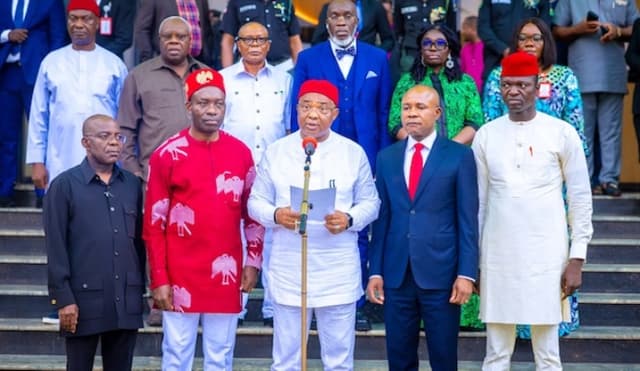
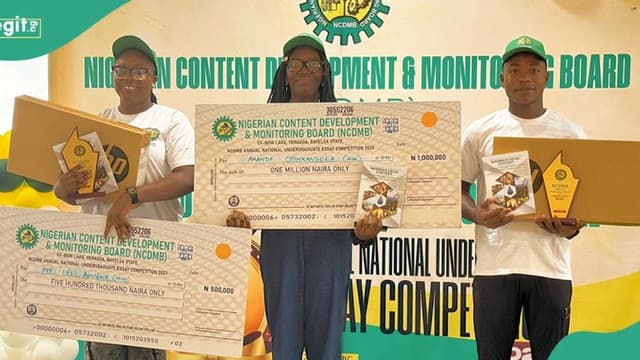
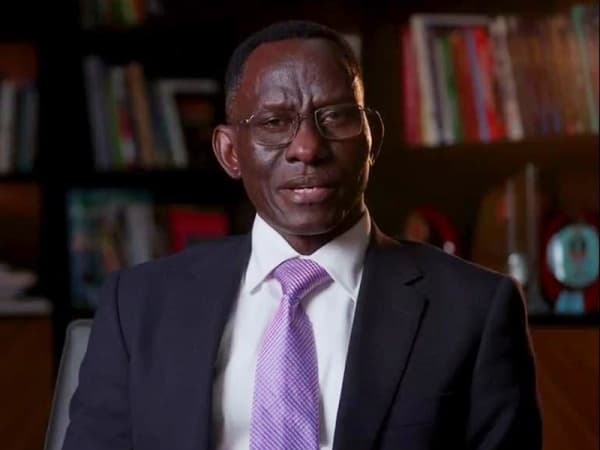
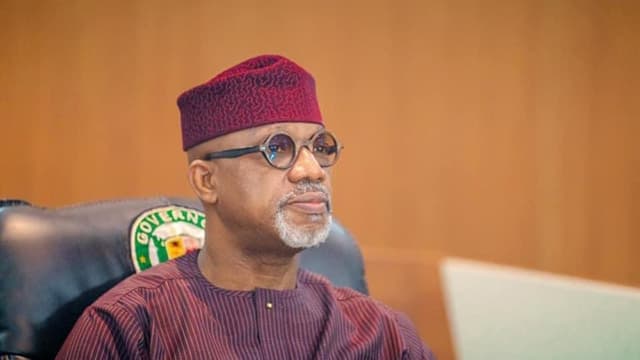

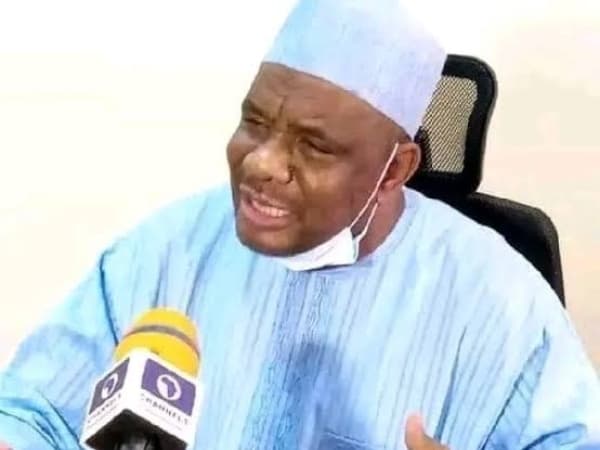


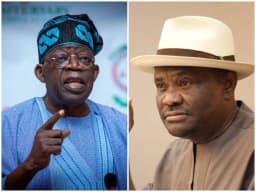
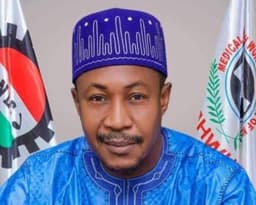

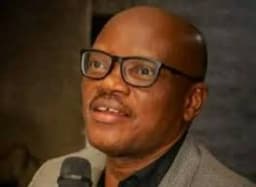
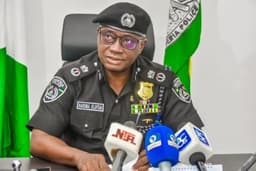
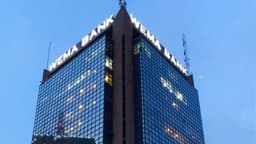
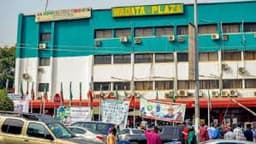
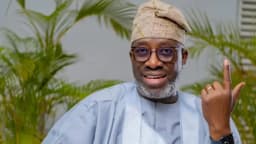
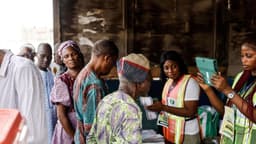
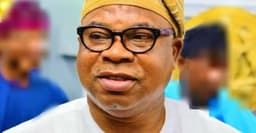
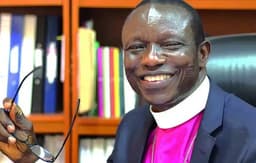


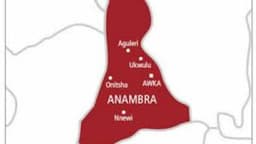
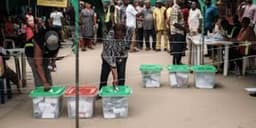
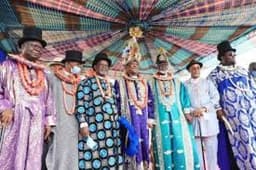
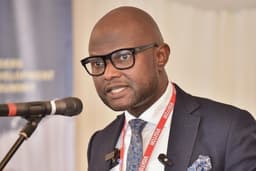
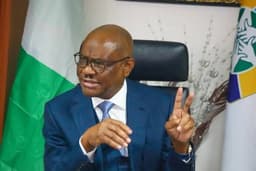

NEWS EXPRESS is Nigeria’s leading online newspaper. Published by Africa’s international award-winning journalist, Mr. Isaac Umunna, NEWS EXPRESS is Nigeria’s first truly professional online daily newspaper. It is published from Lagos, Nigeria’s economic and media hub, and has a provision for occasional special print editions. Thanks to our vast network of sources and dedicated team of professional journalists and contributors spread across Nigeria and overseas, NEWS EXPRESS has become synonymous with newsbreaks and exclusive stories from around the world.